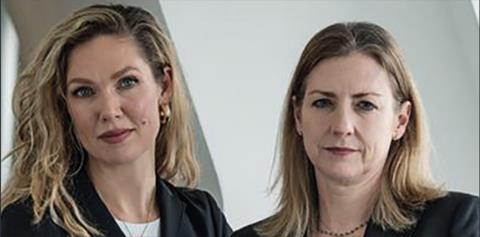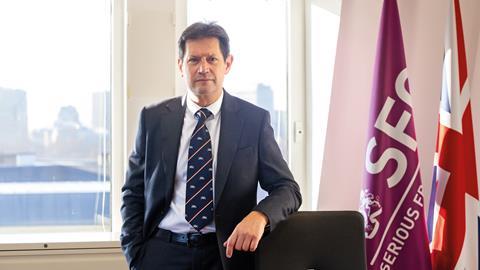After unveiling the SFO’s five-year strategy, director Nick Ephgrave spoke to the Gazette about how the agency intends to harness technology to improve disclosure. He also wants the agency to be ‘career-enhancing’ for its lawyers
Recently installed SFO chief Nick Ephgrave describes himself as an ‘action-orientated person’. So it is perhaps no surprise that, as Ephgrave said in his inaugural speech, the organisation had ‘already gone through more front doors in the last three months than in the last three years’.
There is much more on his agenda. Speaking to the Gazette after last month’s publication of a five-year strategy, he reiterated his intention to speed up casework through machine learning – he doesn’t like the term AI – incentivisation, and more proactive investigations.
The SFO is currently using machine learning in a live case for disclosure review to see if using the technology will help expedite the process, which is notoriously long in SFO cases. The tech will work alongside a human document reviewer ‘like we’ve always had, looking at what they’re looking for and constantly going through the pile of documents that this person is going through and bringing to the top of the pile documents it thinks are more likely to be of interest than not.
‘That doesn’t mean we don’t have to look through the whole pile, but the relevant stuff gets brought to the top so we find it more quickly. We’re also testing to see whether the accuracy level is at least as good as a human reviewer.’
'I think we should incentivise whistleblowers. I will try and use my influence, the position I have, to negotiate, get other people on board with this idea'
Nick Ephgrave, SFO
An inspectorate report into the handling of disclosure following the agency’s decision to offer no evidence in the G4S case after a 10-year investigation found the SFO had ‘already identified many of these issues and started to act’. A new document review platform with greater functionality ‘mitigates much of the risk of the past’.
The report added: ‘The SFO is better placed to discharge its disclosure obligations and improvements have been made since the handling of the G4S case.’ Highlighting the need for increased funding, the report said: ‘We suggest that the SFO consider structural changes to strengthen disclosure handling.’
Procedurally, one reform that Ephgrave would like is the power to reward whistleblowers financially. ‘I think we should incentivise whistleblowers,’ he said. ‘I will try and use my influence, the position I have, to negotiate, get other people on board with this idea if they think it’s a sensible thing, and try and use that to lobby for some kind of change in the arrangements of this country.’
He pointed to the US – where he said more than 700 UK nationals have ‘blown the whistle’ since 2012 – asking ‘why have they gone there and not here?’ He added: ‘At the moment, it is a lot to ask [people] to blow the whistle. It’s a big ask even if it is the morally right thing to do.’
Plans to bolster preventative measures are ‘less well-formed’, Ephgrave said, but the intention is to ‘look at opportunities to work with regulators like the FCA… to educate, inform and get behind preventative initiatives that are being developed’. He added: ‘The most important thing around our contribution to prevention should be deterrence.’
Speaking of his workforce, Ephgrave said: ‘If the SFO is seen to be a career-enhancing place to come as a lawyer, for example, so when you go back out to private practice you get taken on more readily with a better salary, that’s a great thing. I think we can do something around that. Influencing the legal communities is really important to understand the value they will get by letting their people come to work for us. We then send them back with better knowledge.’
The Gazette has spoken to one lawyer who did opt for a career at the SFO and she speaks well of her experience. Victoria Jacobson, a co-case controller and prosecutor on the Glencore investigation, previously worked as a barrister with the FCA and in anti-corruption practice at Morrison & Foerster LLP. Jacobson described the Glencore investigation, which resulted in the largest ever penalty imposed for corporate crime, as ‘important, history-making stuff’.

As co-case controller with Elizabeth Collery, a ‘barrister who spoke the same language’, Jacobson described the co-working model as ‘really useful’. She said: ‘We have the most amazing working relationship. I believe this should be replicated on any case of this size.’
Jacobson added: ‘[Glencore] involved global resolution…and it was interesting to learn how other places do the job. It has been fascinating. This is an example of it all working very well. It was a talented group of people with diverse skillsets who came together with a collaborative approach.’




































